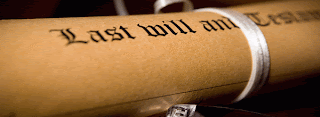Tenants in common – is it right for you ?
Increasing numbers of homeowners are choosing to hold their properties as tenants in common to cut inheritance tax, avoid care home fees or protect their share. We explain how it works.
What is tenants in common?
Typically couples own their home as joint tenants. This means that both own the whole of the home. If you own your home as joint tenants, then if one partner dies, the other automatically becomes the sole owner of the home.With tenants in common each owns a set share – this can either be half each, or a defined percentage. A growing number of couples are now in second relationships with both parties having had children with a previous partner. With tenants in common one member of a couple can pass on their share of the home on death, say to their children, while the other member of the couple can continue to live there, passing on their half on death. It is also a way for couples who have put unequal deposits into a property to protect their share in case they split up, this can ease the fears of families gifting deposits to their children. For example, The property can be held as tenants in common, with a document showing one owner put in 70% of the deposit and one owner 30% and in the event of break-up and sale the initial deposits should be returned as such. Tenants in common can also prevent you have having to sell your home if you need to go into long-term care.
Why did tenants in common gain in popularity?
The use of tenants in common arrangements by couples grew as a way of minimising inheritance tax liability.This enabled them to pass on the value of their home in two halves, with each member of the couple benefiting from their individual inheritance tax allowance in turn – effectively doubling the allowance. But in 2007, then Chancellor Alistair Darling announced that married couples and civil partners would be able to transfer their inheritance tax allowance to each other, removing the need for them to use tenants in common arrangements. The changes to inheritance tax meant that with immediate effect married couples and civil partners could pass on their individual inheritance tax allowance on death (£325,000 in 2012/13) - creating the ability to bequeath up to £650,000 tax-free. However, the rules do not apply to unmarried cohabiting couples or relatives living together.How it works
Due to the rising cost of housing, a property alone can push estates over the IHT threshold. If you own your home as joint tenants then both of you own the whole of the property, so when one partner dies, the other automatically becomes the sole owner of the home. With tenants in common, you each own a share of the property, typically split half and half.There is no inheritance tax to pay on assets willed between husband and wife, so the surviving partner does not have to pay IHT. But when the second partner dies, those who inherit the estate, typically the children, would have to pay IHT. IHT is charged at 40% on any assets over the nil-rate band. When the Government introduced the ability to transfer inheritance tax allowances it only did so for married couples and civil partners.
Other joint owners can still benefit from tenants in common. By splitting the home in two, the half belonging to the first partner to die could be passed straight onto their children or any designated beneficiary. As long as the half is worth less than £325,000 then no tax will be due. When the second partner dies, their half, which is also inherited by children, may also be below the threshold, so again would miss IHT.
If you think that you, your partner and your family would benefit from an update of your existing Wills or new Wills to include severing the Joint Tenancy on your property to Tenants in Common get in touch we will be pleased to help.
Call us now on 01242 255 125 or email us at joan@graysgroup.co.uk. Further information can be found at graysgroup.co.uk.







